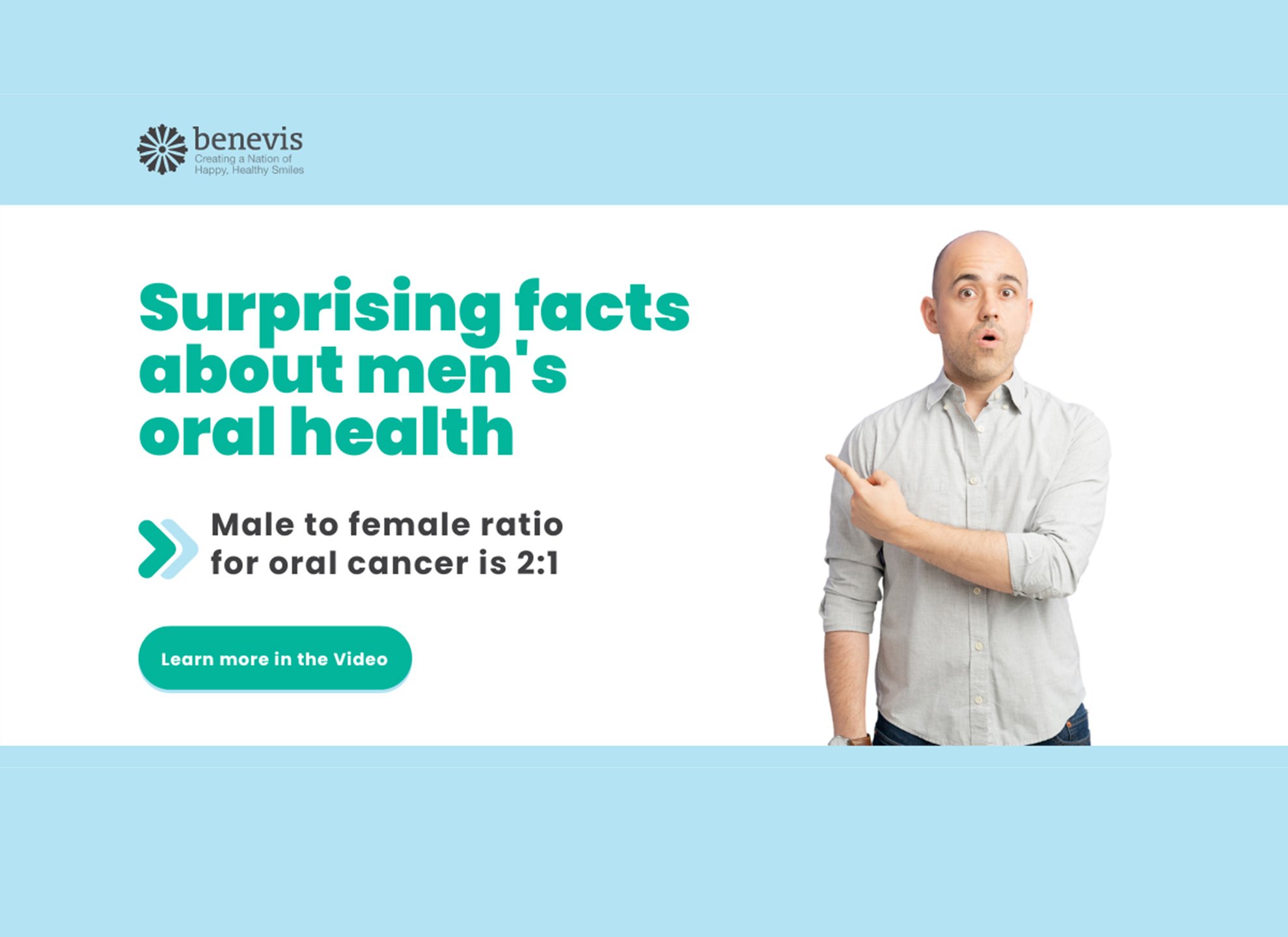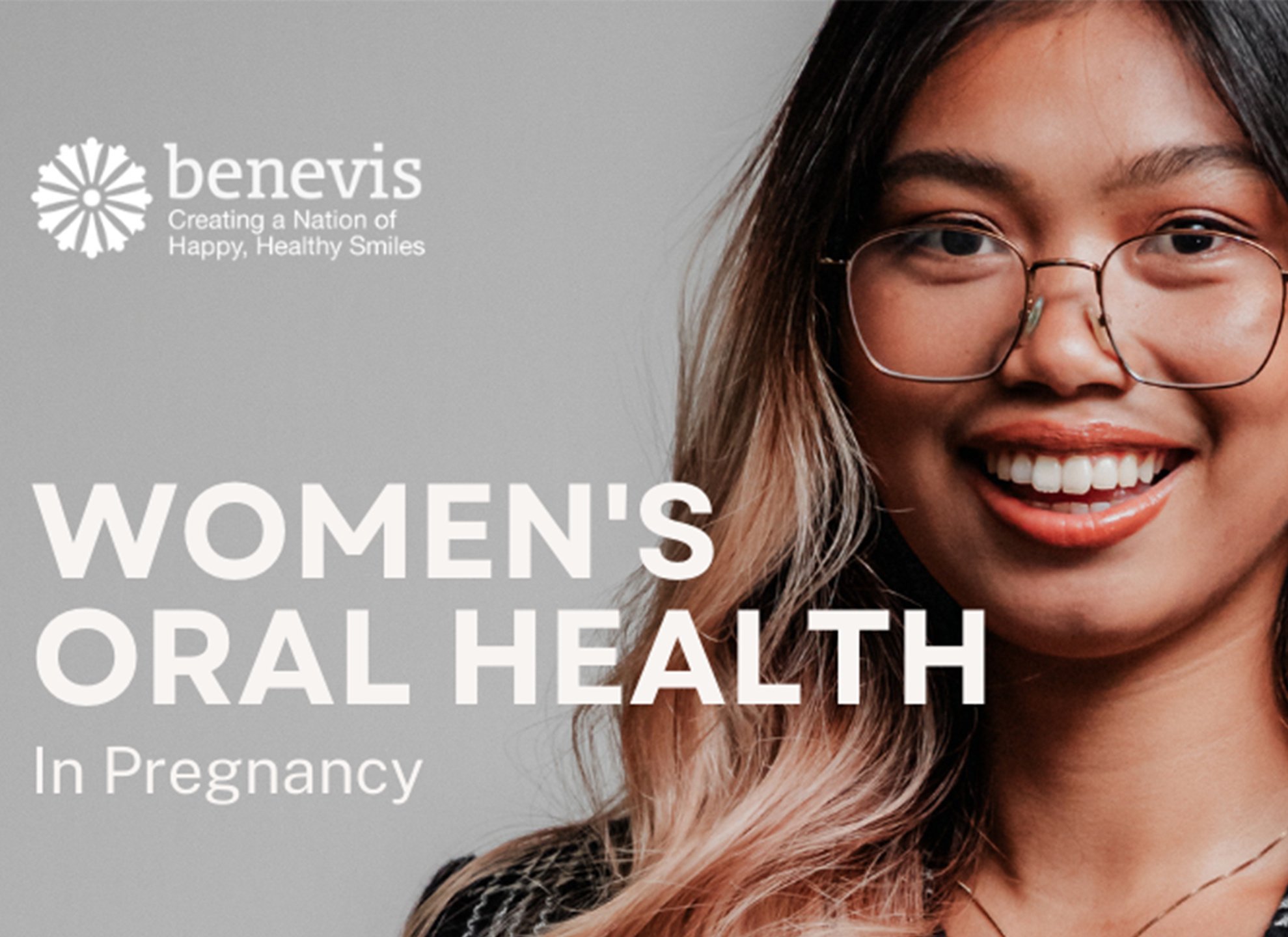April is Oral Cancer Awareness Month: Why Your Dentist Plays a Key Role in Prevention and Early Detection
Hey there! Did you know that your dentist does more than just clean your teeth and fill cavities? We also play a crucial part in detecting oral and head and neck cancers early, which can be lifesaving. As we recognize Oral Cancer Awareness Month this April, it's a great time to discuss how we, as dental professionals, help in the fight against oral cancer, and how we can work together to prevent it.
Early Detection: Why It’s So Important
Oral cancer is sneaky, and it doesn’t always show obvious symptoms. With regular screenings, dentists can catch warning signs early when treatment is much more effective.
“Oral cancer symptoms are harder to identify early without regular assessments, which is why Benevis dental homes build examinations into routine dental cleanings, helping to prevent the development of cancer,” says Dr. Dale Mayfield, DDS, Chief Dental Officer at Benevis.
Here’s how we help:
Regular dental checkups are a great opportunity for us to catch any potential issues early.
- Comprehensive Exam: During routine dental visits, we thoroughly examine the inside and outside of your mouth for suspicious areas, like swelling, lesions, or lumps. We’ll check your neck, face, lips, gums, and tongue, for any unusual changes.
- Biopsy: If we spot something concerning, we might suggest a biopsy to help catch cancer in its earliest stages.
- Tobacco Cessation: As dentists, we can also provide support and advice on quitting tobacco— a major risk factor for oral cancer.
- Follow-Up: If something unusual is spotted, we’ll make sure you’re referred to a specialist for further evaluation.
HPV and Oral Cancer: What’s the Connection?
You may also be surprised to learn that HPV (Human Papillomavirus) is linked to a growing number of oropharyngeal cancers. These arecancers that appear in the back of the throat, the tonsils, and at the base of the tongue. The CDC estimates that 70% of these cancers in the U.S. could be caused by HPV.
So, what’s the solution? The HPV vaccination can help protect against HPV-related cancers. From our experience, we know that when healthcare providers like us recommend the vaccine, parents are more likely to get their children vaccinated.
The more we educate our patients (and their parents) about the HPV vaccine, the better the chances of preventing cancers related to HPV.
Warning Signs of Oral Cancer You Should Know About
So, what should you be on the lookout for? Here are a few signs that might point to oral cancer:
- Red or white patches: A red patch (erythroplakia) is less common than a white plaque (leukoplakia), but it’s more likely to become cancerous.
- Lumps or thickening: If you feel a lump or thickening in the soft tissues of your mouth or neck, it could be a sign of something serious.
- Difficulty chewing or swallowing: Pain or difficulty moving your jaw or tongue should be checked out.
- Persistent symptoms: Any discomfort that doesn’t go away within two weeks is worth getting checked by a dentist.
If you experience any of these symptoms, it’s important to seek professional care right away. Early diagnosis makes a huge difference.
Risk Factors: Who’s at Higher Risk?
A few things can increase the risk of developing oral or head/neck cancers. In fact, did you know that men experience higher rates of mouth cancer than females by a ratio of 2-to-1? If you or someone you know has the following risk factors, it’s especially important to stay on top of oral health:
- Tobacco and alcohol use (especially together)
- Age (Older adults are at higher risk)
- Sun exposure (this can affect your lips)
- Poor diet (lack of fruits and veggies)
- HPV infection (especially for oropharyngeal cancers)
This April, let’s all take a moment to think about oral cancer awareness and how we can work together to prevent it. Dentists aren’t just here for cleanings and fillings—we’re on the frontlines of catching oral cancers early and educating our patients about life-saving vaccines like the HPV vaccine.
Remember, early detection is key! Stay up to date with your dental checkups, keep an eye out for any unusual changes in your mouth, and talk to your dentist about the HPV vaccine. Let’s make oral cancer prevention a priority—because prevention starts with us!
Stay healthy, stay informed, and let your dentist be part of your cancer prevention team!


